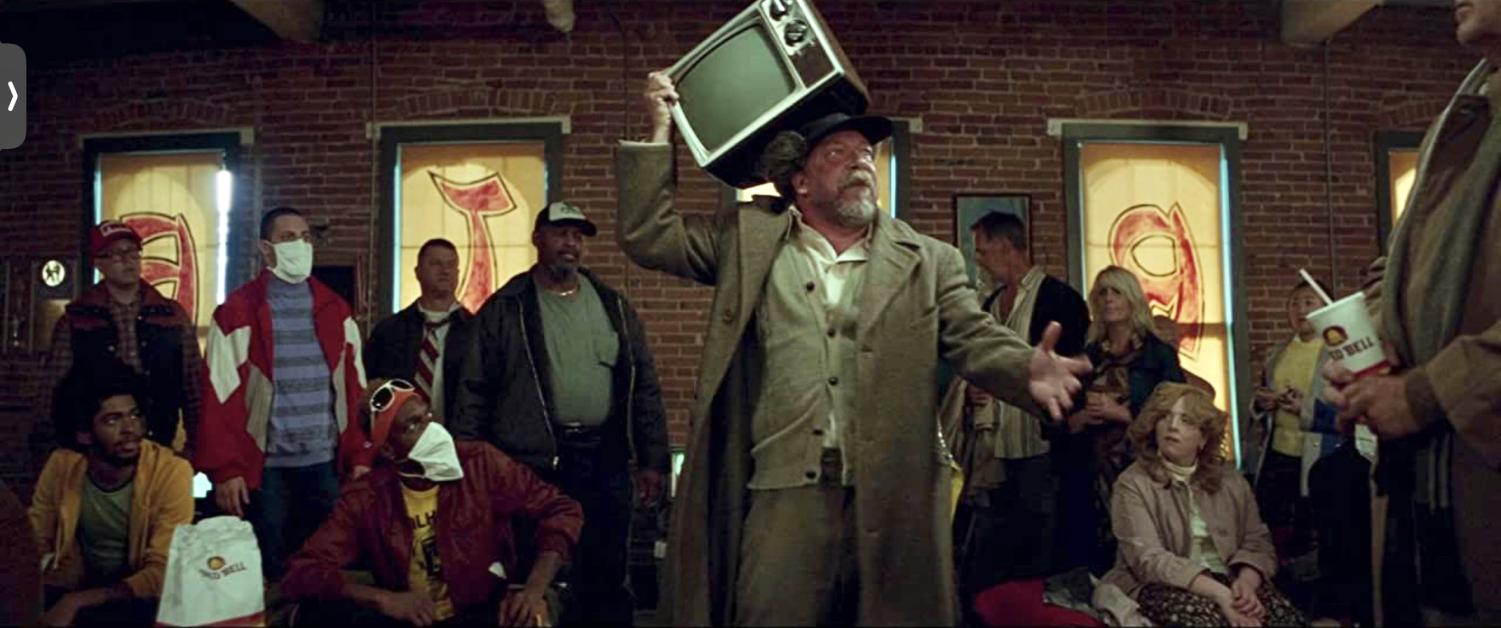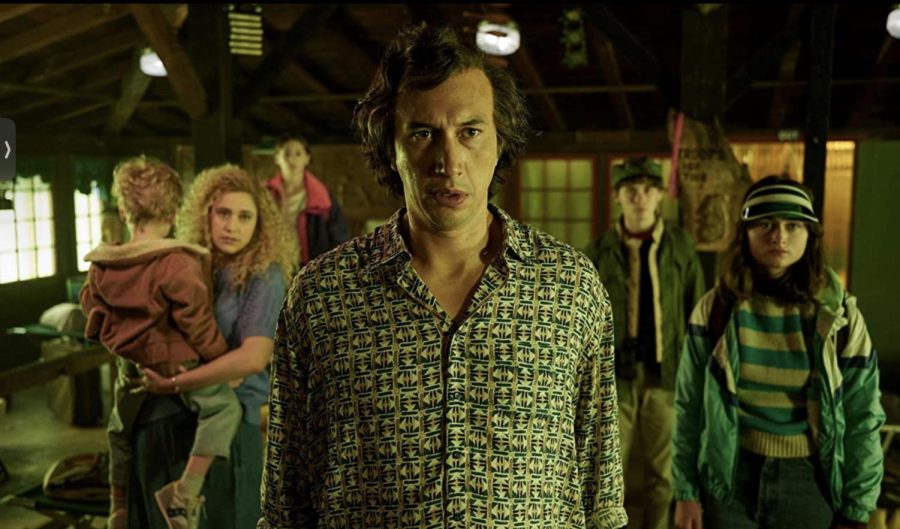“White Noise” is a weird movie
Adam Driver and Greta Gerwig star in this dry comedy about death, family and living in a postmodern world (Photo Courtesy of A24)
February 7, 2023
Novelist Don DeLillo published his eighth book, “White Noise,” in 1985. “White Noise” is an absurdist novel about consumerism, the influence of media and the general state of complacency in the modern world. It is infamous for being a weird novel with a non-conventional structure and uncanny dialogue.
Director Noah Baumbach released his film adaption of “White Noise” on Netflix in 2022, receiving a lukewarm response from both fans of the book and newcomers to the story. The film touches on aspects of our modern world that are as true now as they were nearly 40 years ago when the book was first published.
Jack Gladney (Adam Driver) is a professor of Hitler studies in the small college town of Blacksmith, Ohio. Jack lives with his wife Babette (Greta Gerwig) and their collective children from previous marriages. When a train wreck results in an airborne toxic event, Jack, his family and their community have to confront the looming fear of death that is present in their daily lives.
“White Noise” is an active antagonist against the viewer. The majority of viewers are coming into this blind without the context of the original novel. The film immediately throws the audience into an abrasively weird atmosphere. However, there is a lot to love about this film if you are willing to get lost in its odd nature.

The production design is incredible. This world is set in a heightened reality of the 1980s, so it’s only natural that the sets look like they were inspired by a Pinterest board of different Taco Bell restaurants from before the 21st century. There are easter eggs from the book throughout the film like the visual gag of store brand products being sold in completely white packaging with the names in big black lettering. These concepts couldn’t fit into the script, but they still find a moment to shine. It highlights the level of care and effort that went into honoring the source material.
However, the film’s tone doesn’t completely land. Its style has more of a sweeping, wholesome family film essence to it, which conflicts with the absurd nature of the dialogue and themes. It felt too much like a Steven Spielberg film, when it should have been more like Wes Anderson’s elevated realities.
Anderson and Baumbach were collaborators in the early 2000s, with Baumbach co-writing films like “Fantastic Mr. Fox” and “The Life Aquatic with Steve Zissou.” Even Baumbach’s own films from this era, such as “The Squid and the Whale,” would be written with an absurdist tone in mind. In “White Noise,” the jokes were dry, and while the characters were often funny to watch, they were not necessarily a joke in the world of the film. It’s a shame because I think a younger Baumbach could have juggled the difficult tone of “White Noise” much better than his present-day abilities.

The most difficult thing to explain about “White Noise” is what it is actually about. “White Noise” is about everything. It discusses our dependence on consumerism, the way we treat news media like entertainment, the trauma of living through a life-threatening experience and, most prominently, death. These topics are never discussed to the fullest and the conclusion of this film doesn’t try to tie up the loose ends. The title “White Noise” refers to all of the grievances that play in the background of these characters’ daily lives, fuzzing together like white noise.
It’s all of the meaningless distractions around us that actively hurt our well-being. The characters in “White Noise” notice the mindlessness of television, radio and tabloids, but they never try to change the status quo. If they did, it would make their greatest fear, the looming nature of death, much clearer. The white noise is the safety blanket of blissfulness Jack and his family surround themselves with. At one point in the film, Jack remarks that their lives sound boring and Babette replies that she hopes it lasts forever. This moment is what “White Noise” is about.
“White Noise” is a pale comparison to its source material, and it is much too alienating for general audiences, but it still works. Even with its flaws, it’s an admirable attempt at adaptation, and it functions as a delightful experience more often than not. Within its heightened and absurd world is a truly profound, human story about modern living, death and love. Even if you end up disliking it, I recommend you give it a chance. Or at least read the outstanding novel it’s based on.







![“[title of show]” is USI’s first summer musical.](https://usishield.com/wp-content/uploads/2025/07/Title-of-Show-Cover-300x208.png)
